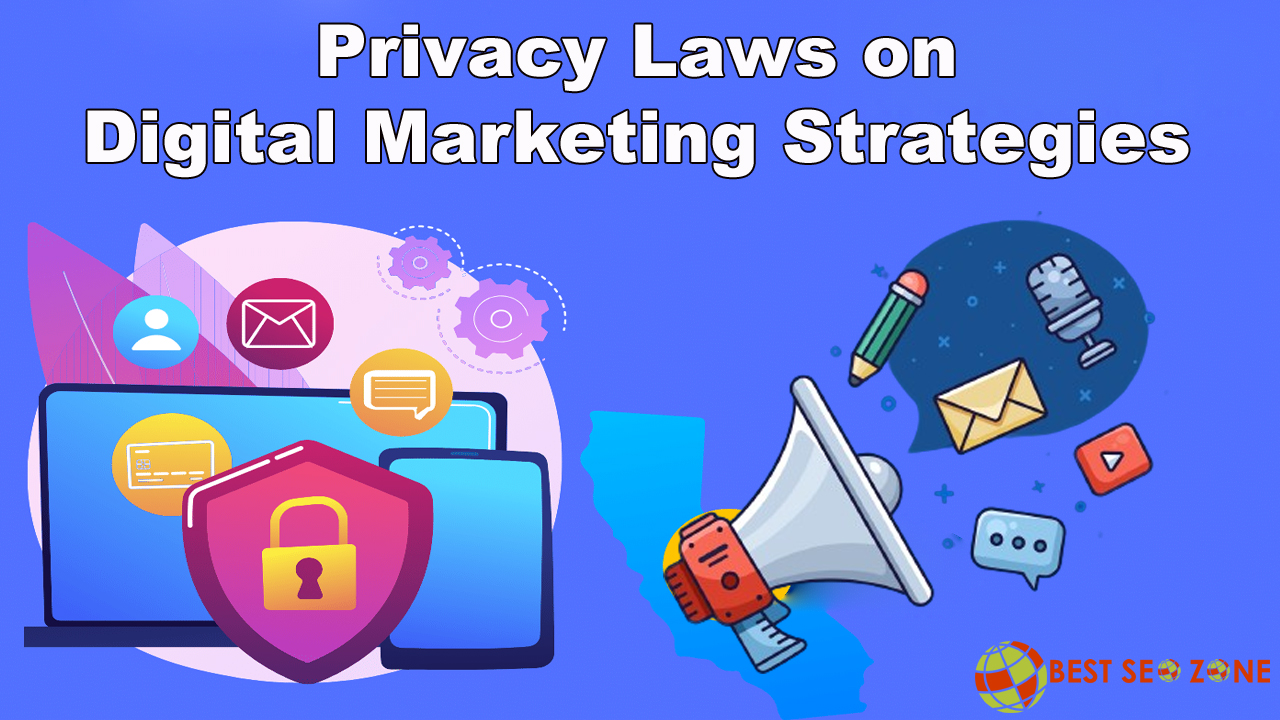Personal information is extraordinarily treasured and corporations use it to apprehend their customers enhance their offerings and tailor their advertising techniques. However, with this exquisite energy comes terrific duty and privacy legal guidelines introduced worldwide to shield individuals’ personal information from misuse. These legal guidelines such as the EU Union’s GDPR California’s CCPA and Canada’s PIPEDA significantly impact how groups operate especially in digital advertising. Entrepreneurs should now navigate strict policies about data collection transparency and consumer consent leading to shifts in techniques. While these laws also pose challenges, they offer possibilities for businesses to construct agree with, and foster better relationships with their clients through adopting greater ethical and transparent practices.
Table of Contents
Understanding the Key Privacy Laws

Popular statistics protection regulation (GDPR)
The GDPR is a law within the European Union that commenced in 2018. It offers human beings greater control over their nonpublic statistics and sets strict policies for the way corporations should cope with these facts. If companies spoil these guidelines they could face very big fines.
California client privacy Act (CCPA)
The CCPA is a law in California that started in 2020. It is similar to the GDPR however applies to residents of California. This law allows people to know what private data agencies gather about them and permits them to request that this information be deleted.
Non public facts safety and digital files Act (PIPEDA)
PIPEDA is a Canadian law that controls how personal corporations gather use and proportion personal records of their commercial enterprise sports. It ensures that corporations handle statistics responsibly and with an appreciation for people’s privacy.
Those legal guidelines are intended to protect nonpublic records and make sure that businesses use them in an honest and obvious manner.
How Privacy Laws Affect Data Collection

Consent and Transparency
Privacy laws require organizations to be clear about the facts they collect and how they use them. This means companies ought to get permission from people before gathering their facts. For virtual entrepreneurs, this often includes the usage of pop-user banners on websites and apps to inform users of approximately data series and request their consent.
Limited Data Usage
Corporations can no longer collect statistics without a particular cause. They have to make certain that any records they gather are necessary for the cause they have defined to customers. For marketers, this means being more selective approximately the facts they accumulate focusing on accumulating what they virtually want.
Greater User Control
Privacy laws supply people with extra manipulation of their information. Customers can now request to see what statistics companies have about them and ask for it to be deleted if they choose. This indicates businesses want to have systems in place to deal with those requests efficaciously.
Secure Data Storage
Organizations have to additionally take steps to guard the statistics they collect. This includes the use of relaxed methods to store records and making sure that only legal personnel can get admission to them. Entrepreneurs want to work closely with IT groups to make sure facts safety.
Impact on Third Party Data
Using records from 1/3 of events (facts that corporations buy or get from different resources) has ended up more complex. Privacy legal guidelines make it vital to ensure that this fact becomes accrued with the right consent and in compliance with regulations. As a result, marketers are now focusing extra on amassing statistics immediately from their customers (first birthday party data).
By following those policies groups can build agreements with their customers and keep away from penalties for noncompliance.
The Shift in Digital Marketing Strategies
Emphasis on First Party Data
First birthday celebration facts are information accrued immediately from customers via interactions like website visits purchases and subscriptions. This form of records is now more treasured because it is miles less complicated to gather while following privacy laws. Entrepreneurs are focusing on constructing sturdy direct relationships with their clients to gather these records.
Enhanced Customer Trust
Privacy laws mean that agencies have to cope with patron facts more carefully. By doing so they can build more trust with their customers. When people know their facts are secure and used responsibly they may be more likely to live unswerving to an emblem. Being obvious approximately facts and practices and respecting privacy allows improve an employer’s popularity.
Personalization with Privacy
Personalized marketing which tailors messages to character options should now respect Privacy legal guidelines. Entrepreneurs are the usage of techniques like contextual concentrated on wherein advertisements are proven based totally on the content a user is viewing rather than their records. This approach allows for customization without violating Privacy policies.
Better Data Management
With stricter privacy laws businesses are improving how they control and use statistics. They are investing in better equipment and practices to make sure that statistics are accrued saved and used in compliance with the legal guidelines. This leads to greater efficient and ethical advertising practices.
Increased Focus on Content Marketing
Because of the restricted right of entry to private data marketers are shifting their recognition to content marketing. Growing high-quality applicable content helps appeal to and interact customers with without relying closely on nonpublic information. Content advertising and marketing can construct logo awareness and loyalty by supplying value to the target market.
Adapting to Regulations
Marketers have to live up to date with changing Privacy legal guidelines and regulate their techniques for this reason. This requires ongoing training and versatility. Corporations that quickly adapt to new guidelines can avoid fines and preserve a fine dating with their customers.
By embracing those changes virtual marketers can maintain to attain their audience correctly while respecting their privacy and complying with the law.
Challenges Faced by Digital Marketers
Compliance Costs and Complexity
One most important missions for digital marketers is the value and complexity of complying with Privacy laws. Implementing the necessary measures to follow those laws can be steeply priced requiring investments in criminal recommendation information protection officers and new technology. Small and medium-sized corporations would possibly discover these fees especially burdensome. Additionally understanding and keeping up with the ever-changing guidelines may be difficult. Marketers need to constantly educate themselves and adapt their strategies to make certain they continue to be compliant.
Reduced Data Access and Strategic Adjustments
Privacy laws additionally restrict the amount of information to be had to marketers making it tougher to accumulate designated insights and carry out targeted advertising. With less right of entry to 0.33 birthday parties, facts marketers must find new methods to understand and attain their target market. This often includes moving to the first celebration statistics series and focusing more on content material advertising and constructing direct relationships with clients. These modifications require creativity and strategic questioning as marketers should find effective methods to engage customers whilst respecting their privacy.
Navigating the New Digital Marketing Landscape
Privacy legal guidelines have delivered huge modifications to how businesses cope with facts and approach virtual advertising. These policies require corporations to be greater careful and obvious about amassing and the usage of personal statistics. Even as this creates demanding situations such as higher compliance expenses and restrained records get the right of entry it also encourages greater ethical practices and strengthens purchaser belief. With the aid of that specialization in first birthday party information enhancing facts control and respecting personal privacy marketers can nonetheless reach their target audience efficiently. Adapting to these laws not simplest helps companies keep away from penalties but also builds more potent extra unswerving purchaser relationships. Embracing those changes is prime to success and responsible digital advertising in cutting-edge international.

Waqas Mushtaq is the Co-founder and CTO of Best SEO Zone which is a prominent digital marketing agency based in Pakistan Since 2010. He is a professional Freelancer who has completed successfully 400+ projects of website development & Digital Marketing.




